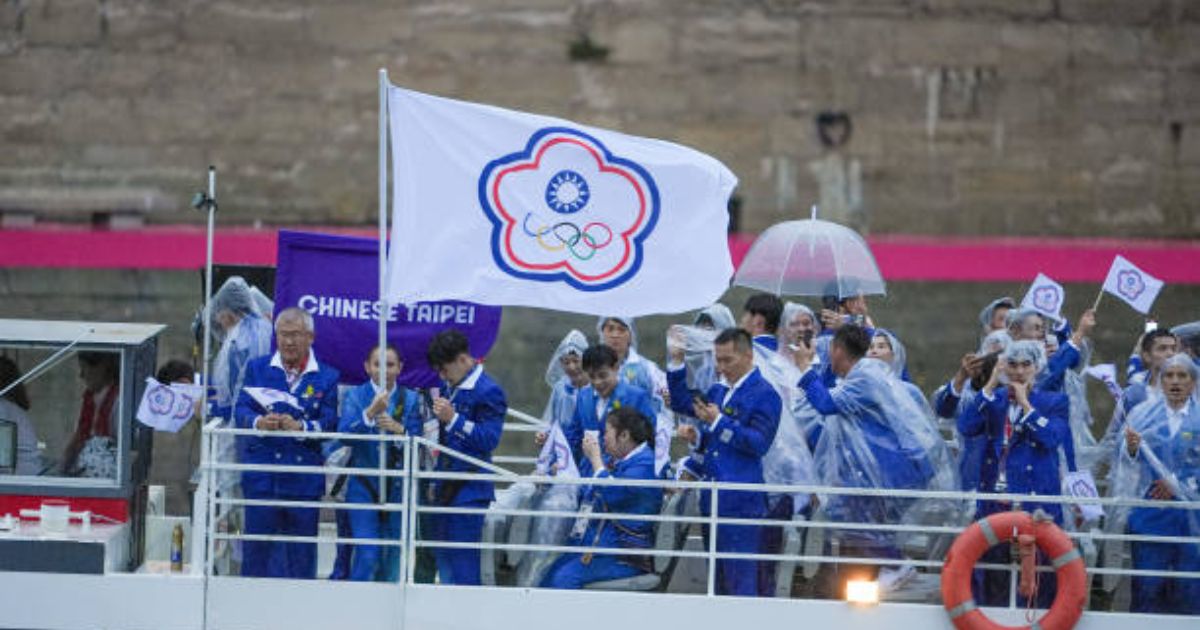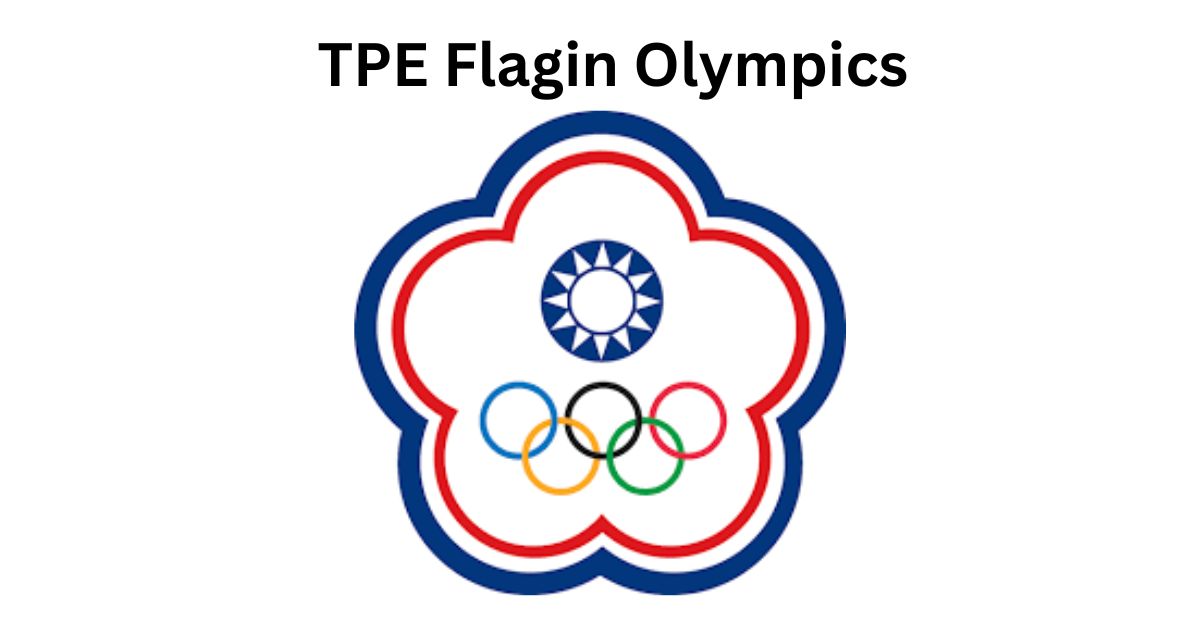When watching the Olympics, you may notice various abbreviations representing countries, and “TPE” is one that often raises questions. What is TPE in the Olympics? understanding what these abbreviations mean can enhance your experience of the games. So, what exactly does TPE stand for, and why is it significant? In this article, we dive into the world of TPE in the Olympics, exploring its history, significance, and the unique circumstances surrounding it.
Table of Contents
ToggleWhat is TPE Stand For?
TPE stands for “Chinese Taipei,” a term used in the context of the Olympics and other international sporting events. This abbreviation is a source of confusion for many, as it does not directly correspond to the commonly known name of any country.
In essence, TPE represents Taiwan, an island nation in East Asia, but due to political reasons, it competes under the name “Chinese Taipei.”
History of TPE in the Olympics
The usage of “Chinese Taipei” dates back to a complex political situation that began in the mid-20th century. After the Chinese Civil War, the People’s Republic of China (PRC) established control over mainland China, while the Republic of China (ROC) retreated to Taiwan.
In the following years, the PRC began to assert itself as the sole representative of China in international organizations, including the International Olympic Committee (IOC).
The Country Behind TPE
Taiwan, officially known as the Republic of China (ROC), is a vibrant democracy with a rich cultural heritage. However, its political status is a sensitive issue.
The People’s Republic of China views Taiwan as a breakaway province, not a separate country. This political nuance has led to Taiwan’s unique position in the international arena, including sports.
The Name “Chinese Taipei”
The term “Chinese Taipei” is a diplomatic compromise that allows Taiwan to participate in international events without implying statehood, which would conflict with the PRC’s One-China Policy.
This name was agreed upon in 1981 through the “Nagoya Resolution,” which was a result of negotiations between the ROC, PRC, and IOC.
Olympic Participation
Taiwan, under the name “Chinese Taipei,” has been participating in the Olympics since 1984. The nation’s athletes have competed in a variety of sports, including archery, weightlifting, and badminton.
Over the years, TPE has had several notable achievements, including winning multiple medals and setting records.
Sports and Athletes Represented by TPE
Some of the most popular sports for TPE include archery, taekwondo, and weightlifting. Athletes like Chen Shih-Hsin, who won Taiwan’s first Olympic gold medal in taekwondo in 2004, and Kuo Hsing-Chun, a weightlifter who has won multiple world championships, are celebrated figures in Taiwan.
Their success brings pride to the nation and highlights the high level of talent and dedication present among Taiwanese athletes.
Challenges Faced by TPE
Despite their achievements, athletes representing TPE face unique challenges. The political sensitivities surrounding Taiwan’s status can affect their participation in international competitions. For example, they often face restrictions on the use of their national flag and anthem.
Moreover, the lack of formal diplomatic recognition by many countries can create hurdles for athletes traveling abroad.
TPE’s Flag and Anthem at the Olympics
When competing under the name “Chinese Taipei,” athletes do not use Taiwan’s official flag or national anthem. Instead, they use a special flag featuring the Olympic rings and the emblem of the Chinese Taipei Olympic Committee.
The anthem played during medal ceremonies is also different, known as the “Flag Raising Song,” which further underscores the political compromises made for their participation.

Public Perception and Support
The people of Taiwan generally support their athletes and take pride in their accomplishments, regardless of the name under which they compete. However, there is also a sense of frustration and longing for international recognition of their identity.
Despite these challenges, the Taiwanese public shows immense enthusiasm for the Olympics and rallies behind their athletes.
International Relations and TPE’s Status
TPE’s status in international organizations is a delicate matter. While it competes in events like the Olympics, its participation is often subject to specific agreements and restrictions.
Click to read about Brody Malone’s injury and its effect on the Olympics.
The PRC’s influence in these organizations means that Taiwan’s representation is carefully managed to avoid implying sovereignty.
Recent Developments and Changes
In recent years, international attention has been drawn to Taiwan, partly due to geopolitical shifts and its success in handling various global challenges.
These developments could impact TPE’s status and participation in future international events, potentially leading to more significant changes in how it is represented.
TPE’s Future in the Olympics
Looking ahead, the future of TPE in the Olympics remains uncertain but hopeful. As international dynamics evolve, there could be shifts in how Taiwan is represented. The growing support for Taiwan’s identity on the global stage might lead to more significant recognition and opportunities for its athletes.
The Importance of Recognition and Identity
Recognition and identity are crucial for athletes and nations alike. For Taiwan, competing as “Chinese Taipei” is a compromise that allows participation but comes with emotional and political costs.
The lack of full recognition affects not only the athletes’ morale but also the sense of national pride among the Taiwanese people.
Conclusion
The story of TPE in the Olympics is a unique blend of sports, politics, and identity. Despite the challenges and complexities, Taiwan’s athletes continue to shine on the international stage, bringing pride and joy to their homeland.
As the world continues to evolve, the hope remains that these talented individuals will one day compete under a name that fully represents their identity and aspirations.
FAQ’s
Who is the TPE Olympics?
Taiwan, officially competing under the name “Chinese Taipei” (TPE), is participating in the 2024 Summer Olympics in Paris from 26 July to 11 August 2024. This marks the nation’s eleventh consecutive appearance at the Summer Olympics.
Despite the political complexities surrounding its name, Taiwan continues to participate and showcase its athletic talents on the international stage under the banner of TPE.
Which country is called TPE?
TPE stands for “Chinese Taipei,” which refers to Taiwan in international sporting events, including the Olympics. This name is used due to political reasons, as Taiwan competes under this designation rather than its official name.
What does TPE stand for in the country?
In the context of countries and international events, “TPE” stands for “Chinese Taipei.” It is used as a designation for Taiwan, particularly in sporting events like the Olympics, due to political and diplomatic considerations.
What does TPE mean in the Olympics?
In the Olympics, “TPE” stands for “Chinese Taipei,” which represents Taiwan. This designation is used due to political reasons, allowing Taiwan to participate in international sporting events without using its official name. This name was agreed upon as a compromise to address the complex political status of Taiwan and its relationship with the People’s Republic of China.







